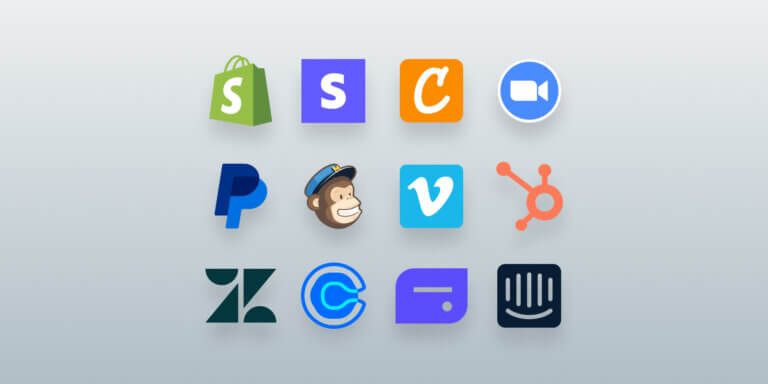Table of Contents
I could go about telling you how online learning has changed digital education by making knowledge accessible to everyone, anywhere, and at their own pace. But as a professional in your area who educates people and shares your expertise with the world, you already know this, right?
So the question at hand is not whether an online platform for learning is a must-have for you to sell your knowledge or train and educate your audiences, but which platform to choose out of the numerous options.
I know a lot of professionals from the educational space, and all of them want their learners to have access to skill development, professional certifications, and lifelong learning opportunities to advance their careers or pursue personal growth. However, with so many options available, selecting the best online learning platform can feel overwhelming.
Over the years, through my interactions with customers and industry experts, I have learned a lot about the pains and difficulties that elearning professionals face. I’ve identified what truly matters to creators, businesses, and trainers looking to educate their audiences. Putting together over 10 years of our team’s experience and expert opinions from top creators and training professionals, I’ve collected the best online learning platforms for different scenarios, to make sure you find the right fit for your needs.
What is an online learning platform?
An online learning platform is a collection of digital tools and functionalities that allow individuals, educators, and businesses to create, manage, and deliver educational content.
These online platforms cater to a wide range of users, from course creators and corporate trainers to universities and enterprises. Unlike traditional learning management systems (LMS), the best online learning platforms often integrate marketing, sales, and community-building tools to help you make your online courses and training programs modern, and at the same time, to meet most of your business needs.
What are the main benefits of online learning platforms?
Elearning platforms offer the infrastructure businesses need to create, manage, and deliver educational content at scale. Without a learning platform, delivering educational content can quickly become time-consuming. You’re managing files, sending updates manually, and losing track of who’s learning what.
The right systems solve the issue by bringing everything into one place—from course creation and delivery to learner tracking and certification—helping you save time, scale easily, and offer a more consistent experience, key benefits of online learning platforms.
What are the types of online learning platforms?
Learning platforms come in many forms, each designed to support different teaching goals, audiences, and delivery methods. Here are the main types of online learning platforms and what each is best suited for:
1. Course marketplaces
Online course platforms such as Udemy and Coursera allow educators to upload and sell courses without managing a website. However, these marketplaces come with trade-offs, such as:
While they provide access to a built-in audience, they lack scalability for course creators who want full ownership of their content. Additionally, these platforms offer numerous online teaching jobs, providing educators with flexible, remote work opportunities and the ability to teach students globally.
How are course marketplaces different from LMSs?
Traditional LMS platforms focus primarily on corporate training and compliance-based learning. They lack built-in marketing and sales features, making them less suitable for entrepreneurs looking to grow their online teaching business. Best online education platforms, on the other hand, offer monetization options, automation tools, and analytics to help educators and course sellers scale their impact.
2. All-in-one course platforms
Elearning platforms such as LearnWorlds and Teachable give creators complete control over branding, pricing, and course structure. Providers design these systems to support independent course creators and businesses with everything they need to function, offering features like website builders, learner analytics, and marketing tools.
3. Open-source LMSs
Open-source LMSs have freely available code for anyone to use, modify, or distribute. Options like Moodle and Open edX are highly customizable but require technical expertise from businesses. For example, hosting, security, and updates must be managed manually, and there is limited built-in support for monetization or marketing.
These open-source learning tools are often used by universities or large organizations with dedicated information technology (IT) teams.
4. MOOC platforms
Massive open online course (MOOC) platforms like edX and FutureLearn host university-level courses that are open to large numbers of learners. These learning platforms are typically designed for academic or lifelong learning, not commercial course selling, since they often limit branding, pricing control, and direct access to learner data—key requirements for businesses and independent educators looking to build their own customer base and learning experiences.
How to choose an online learning platform
I can’t give you a magic pill and tell you which online learning platform is best for you, but I can share my experience—gathered from numerous educators—on the important criteria to consider when choosing the right one for your needs:
According to Valentin Radu, CEO & Founder of Omniconvert: “Choosing the right online learning platform in 2025 is all about balancing efficiency, engagement, and scalability. First, prioritize platforms that offer robust analytics—insights into learner behavior can make or break the optimization process, just like understanding customer value in ecommerce. Look for customization options; a one-size-fits-all approach won’t cut it if you’re aiming for long-term loyalty, whether in learning or business.
Ensure the platform supports mobile-first experiences because convenience isn’t optional anymore—it’s expected. Seamless integration with other tools (like CRMs or marketing automation software) is a must to save time and centralize data. Consider the community aspect, too. Much like retaining a loyal customer base, active learner engagement often thrives on meaningful connections.
Lastly, security matters—your learners’ data needs to be as safeguarded as your customers’ data. With these factors in mind, choosing the right platform becomes less overwhelming and more about strategy, just as I approach Customer Value Optimization—always with clarity and purpose.”
💡 Ready to find the perfect platform for your online courses? Discover how to choose the right elearning solution in this FREE expert webinar.
Use cases of online learning platforms
There’s no one-size-fits-all when it comes to online learning platforms. It all depends on what you’re trying to achieve. Are you a solo creator launching your first course? A business that wants to train its employees? A company educating customers?
Here’s a breakdown to help you find your best match.
Solo course creators and coaches
Best picks: LearnWorlds, Thinkific, Teachable, Kajabi, Graphy, EzyCourse, LearnDash
If you’re a creator, coach, or educator looking to build and sell online courses, these elearning platforms are designed with you in mind. They offer tools to upload content, customize your brand, accept payments, and grow your audience.
Probably not for you: Coursera, edX, Udemy. These platforms control pricing and branding, making them less appealing if you want full ownership.
Membership communities and digital entrepreneurs
Best picks: LearnWorlds, Kajabi, Thinkific, Teachable, Graphy, EzyCourse
If you’re building a membership-based business, these digital learning platforms help you create gated content, set up recurring revenue streams, and build a community.
Skip these: Docebo, Litmos, Coursera. They’re too enterprise-focused and don’t support community-driven business models.
Small and medium businesses (SMBs) training employees
Best picks: LearnWorlds, Thinkific Plus, Docebo, Litmos, Moodle, LearnDash
If you’re an SMB that needs an easy way to train employees, these platforms offer structured learning, analytics, and reporting to track progress.
Less ideal: Udemy (you don’t control the experience), Kajabi (not designed for employee training).
Enterprises training employees
Best picks: Docebo, Litmos, Coursera for Business, edX for Business, Moodle (with dev support)
If you’re a large enterprise with a serious need for custom learning paths, HR system integrations, and security compliance, these online training platforms fit the bill.
Companies offering product training to clients and partners
Best picks: LearnWorlds, Docebo, Litmos, Thinkific Plus, Moodle, LearnDash
If your business sells software, hardware, or services, you may need a customer academy to help clients and partners use your products more effectively.
Probably not for you: Udemy and Teachable—they lack customer segmentation and external organization management.
Academic institutions and schools
Best picks: Moodle, edX, Coursera for Campus, LearnWorlds, Thinkific, LearnDash
For universities and schools, structured learning is a must. These platforms support grading, assessments, and integrations with school systems.
Less ideal: Kajabi, Teachable—they don’t have formal academic tools.
SMBs that are training providers (selling B2B or B2C)
Best picks: LearnWorlds, Thinkific Plus, Teachable, Kajabi, LearnDash
If you run a training business that sells to individuals or other companies, these online learning platforms support white-labeling, bulk enrollments, and B2B seat-based pricing.
Not ideal: Udemy, Coursera, edX—you can’t fully own the customer experience.
The 16 top online learning platforms
The landscape of learning platforms is diverse, with each option offering different strengths depending on your content, audience, and level of control. To help you compare, we’ve outlined the 16 top online learning platforms, along with who they’re best suited for.
| Online learning platform | For whom? |
| LearnWorlds | Individual creators and businesses of any size looking for a flexible, all-in-one platform for digital products, online courses, and corporate training—complete with full ownership, branding, and monetization options. |
| Udemy | Solo educators and small edupreneurs willing to trade revenue and branding control for access to a large marketplace with built-in audiences. |
| Coursera | University faculty and institutions that meet platform-specific requirements and want to offer accredited courses or degree programs within a structured, closed ecosystem. Not ideal for independent course creators. |
| Thinkific (+Thinkific Plus) | Small businesses and solopreneurs wanting a simple, easy-to-use platform with decent course delivery and monetization features and do not require advanced customization options. |
| edX | Universities and organizations with the resources to manage Open edX or partner with the edX marketplace to deliver structured, high-quality educational content. Not suited for independent educators who want full control. |
| Teachable | Beginner course creators and solo educators who prioritize ease of use over deep customization or community features. |
| Kajabi | Coaches, solopreneurs, and digital entrepreneurs who want an all-in-one solution that combines course creation with marketing automation and memberships. |
| Docebo | Medium to large enterprises that need a robust LMS with AI-driven learning paths, corporate training, and extensive integrations. |
| Litmos | Businesses focused on compliance and workforce training, looking for a simple LMS with corporate-grade reporting and automation. |
| Moodle | Academic institutions and organizations needing an open-source, highly customizable LMS with strong grading and assessment tools, but need to have tech skills. |
| LearnDash | WordPress users who want a self-hosted course platform with deep customization options but require technical know-how. |
| Ezycourse | Language instructors and educators looking for an easy-to-use teaching and membership platform with community engagement. |
| Graphy | Digital creators and educators looking for an affordable course platform that also supports digital products, memberships, and mobile learning. |
| SamCart | Entrepreneurs and digital product sellers focused on maximizing conversions through high-performing checkout flows. Ideal for those prioritizing sales and upsells over deep course engagement. |
| Passion.io | Coaches, fitness instructors, and wellness creators looking to deliver mobile-first learning experiences through a branded app without needing technical skills. |
| FreshLearn | Solo course creators and small teams seeking an affordable, all-in-one platform to launch and sell digital products, courses, and memberships with minimal setup. |
1. LearnWorlds: The all-in-one, flexible online learning platform to create and sell online courses and digital products

LearnWorlds is a modern and comprehensive AI-powered LMS with built-in course authoring, e-commerce, community, and user management features.
Unlike many other platforms, LearnWorlds is not just a course hosting service—it’s a true all-in-one elearning solution that supports different business models, from selling digital products to delivering training programs to employees, partners, and customers. It also supports live courses and stands out in interactive course creation, automation, AI-powered tools, community-building features, and advanced marketing capabilities.
With LearnWorlds, you can create your own fully branded academy, launch a white-label mobile app, and deliver an exceptional learning experience.
Pros and cons
The pros of LearnWorlds include:
Cons of LearnWorlds include:
Who is it for?
LearnWorlds is ideal for educators, trainers, and businesses seeking a flexible, all-in-one platform to create interactive and customized online learning experiences. Its robust feature set caters to those who prioritize learner engagement and want to deliver high-quality educational content with an advanced AI-powered learning platform.
Pricing
It offers a 30-day free trial for users to explore the platform before committing, and then 4 subscription-based pricing plans as follows:
*Information retrieved from LearnWorlds’ pricing page in July 2025.
LearnWorlds is one of the best online learning platforms for any size of business looking to create a professionally looking academy and sell online courses. Try LearnWorlds with a 30-day trial today.
💁 Find out more about LearnWorlds’ alternatives.
Customer verified review
💡 Looking to boost your productivity? Then our free webinar, LearnWorlds AI-powered tools: Do more with quality-focused output, is the right one for you. Watch the webinar and learn how LearnWorlds’ AI tools can streamline and facilitate your knowledge business.
2. Udemy: A leading course marketplace

Udemy is one of the most popular online course marketplaces on the web, featuring more than 210,000 online video courses. This educational platform has over 60 million students, 65 thousand instructors, and subject matter experts creating online courses.
Udemy makes course creation possible for everyone with the possibility of acquiring new skills. In doing so, it offers a range of online learning materials, including PDF documents, PowerPoint, text, and video content, among many others. Additionally, Udemy supports live video classes, providing flexibility and accessibility for students from various backgrounds.
Instructors can join Udemy and start teaching online, but Udemy takes a huge piece of the revenue and has control over pricing and discounting the course.
Pros and cons
Pros of Udemy include:
The cons of Udemy are:
Who is it for?
Learners: Udemy has a course for almost every discipline, but potential students should always read the reviews before buying one. The quality is not consistent.
Instructors: It’s great for teachers, instructors, educators, and freelancers who are just starting out.
Pricing/Revenue share (for instructors)
To start charging students a fee for courses on Udemy, you will need to become a premium instructor. In such a case, the following conditions apply:
*Pricing adjusted on a global price tier matrix developed by Udemy.
*Pricing information retrieved from the Udemy support page about instructor revenue share in July 2025.
Learner pricing: Most Udemy courses end up selling between $10-$20, with very few exceptions where instructors have set a higher price.
Customer verified review
3. Coursera: The academic learning platform

Coursera is an online learning platform with over 100 million users dedicated to offering high-quality online training courses worldwide. Partnering with top universities and businesses, it offers students the opportunity to receive certifications from renowned institutions upon enrolling in its paid courses.
The elearning platform also provides a flexible environment to teach students, connecting educators with learners of various levels through one-on-one sessions or structured classes.
Coursera offers individual courses, specializations, certifications, and degree programs (for bachelor’s and master’s degrees) that support on-demand video lectures, homework exercises, peer-reviewed assignments, and community discussion forums.
With Coursera Plus, students can get unlimited access to 90 percent of the learning programs in the Coursera catalog via a yearly or monthly subscription option.
Pros and cons
Coursera’s pros are:
On the other hand, Coursera’s cons are:
Who is it for?
Learners: Anyone who wants to learn from prestigious institutions, whether they are looking for a one-off course, certification, or an online degree.
Instructors: It is aimed at professors who are based at a HE partner institution or business.
Pricing
Coursera offers free courses, subscriptions, and one-off payments depending on the course or program.
Customer verified review
4. Thinkific: An all-in-one learning platform for SMEs

Thinkific is a standalone course platform that helps you build and sell online courses. It provides everything you need to create your online education business, including an easy-to-use interface for building courses and rich multimedia to add to your course content right away. Thinkific also offers features that enhance the experience for online teachers, such as flexible payment options, interactive tools, and assessment capabilities.
Thinkific is a popular option for course creators launching their business, but support is lacking.
Pros and cons
The pros of Thinkific include:
The cons of this platform for online learning are:
Who is it for?
Learners: Thinkific academies usually offer decent video courses with a certification, but usually top-tier educators choose more professional platforms to deliver their training.
Instructors: Thinkific is ideal for solopreneurs, small/medium businesses – SMEs, and coaches who want to generate more income.
Pricing
The platform has a 14-day free trial plan. Subscription plans include:
*Information retrieved from Thinkific’s pricing page in July 2025.
💡 View a list of Thinkific Alternatives
💡Compare Thinkific to LearnWorlds
💡Compare Thinkific Pricing to Teachable & LearnWorlds
Customer verified review
5. edX: The marketplace and open source LMS

EdX.org (course marketplace) and OpenEdX are two sides of the same coin. EdX is the learning platform where students find online courses from various universities, and OpenEdX is an open-source content management system.
Both were created by a team of scientists from Harvard University and MIT with the goal of providing online university-level education across the globe.
EdX.org offers over 4,000 online courses from 250 prestigious businesses and universities offering higher education in many disciplines. These mainly specialize in the sciences–engineering, computer science, data science, math, humanities, business, and management. Additionally, edX supports an online English learning platform designed for engaging and interactive English language education, particularly for younger students aged 4-12.
Pros and cons
The biggest pros of this online education platform are:
Cons of this system include:
Who is it for?
Students (EdX): It has a very diverse library of courses suitable for most ages looking to learn a subject or new skills.
Instructors (OpenEdX): It’s great for businesses that can afford a team or outsource the development and maintenance of the platform on their own servers.
Pricing for instructors
It’s free to join, but there may be additional costs for procuring a server and system support and getting expert help from OpenEdX’s service providers or freelancers, whose pricing varies according to your project’s requirements and budget.
Customer verified review
6. Teachable: All-in-one course platform for coaches
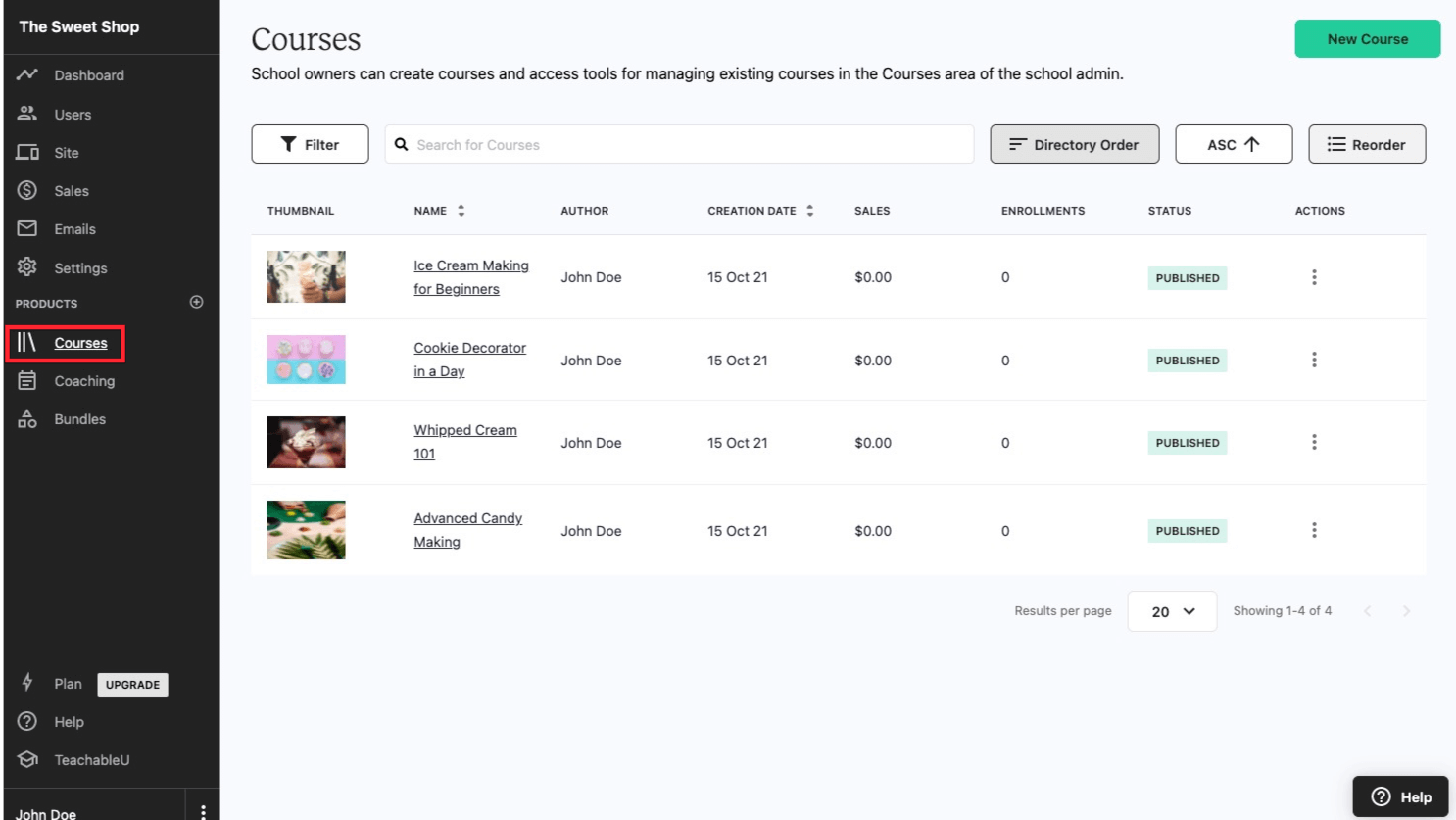
Teachable is an online teaching platform that serves the everyday instructor, helping them transform their knowledge into a business. Teachable provides an easy and simple solution for uploading your learning content, customizing your online school, and communicating effectively with your students.
Teachable embodies simplicity. It’s easy to use and ideal for beginner course creators wanting to sell video courses, tutorials, or coaching. It also comes with the digital marketing tools you need to promote your courses.
Pros and cons
Pros of Teachable include:
The cons of this digital learning platform are:
Who is it for?
Instructors: It’s a great option for new course creators, solopreneurs, and coaches due to the free plan.
Learners: Teachable courses are more often video lessons with some quizzes. Teachable schools are great when they specialize in video tutorials, but you will not find many great certification courses there.
Pricing
Teachable does not offer a free plan, but it has a 7-day free trial. Also, it offers the following paid plans:
*Information retrieved from Teachable’s pricing page in July 2025.
💡Compare Teachable with LearnWorlds
💡Check out more Teachable Alternatives
💡Are you looking for a SCORM-compliant LMS?
Customer verified review
7. Kajabi: Strong course platform with marketing features
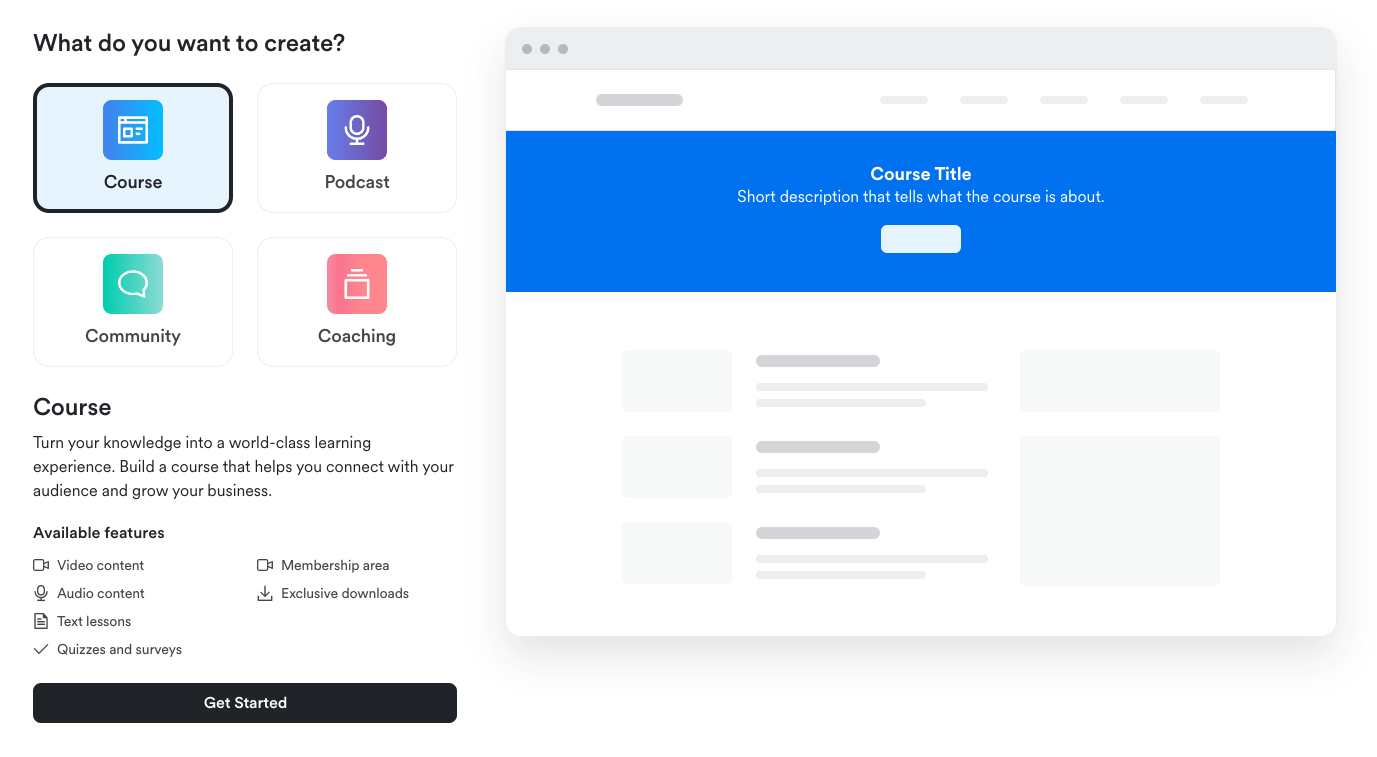
Kajabi is an all-in-one online platform that offers the tools to sell digital products, including online courses, coaching programs, and podcasts. Kajabi specializes in building high-converting sales pages, landing pages, and webinar pages for your online business and launching your advertising campaigns.
Pros and cons
Kajabi’s pros include:
The cons of this online training software are:
Who is it for?
Instructors: It is for non-techy online course creators, digital entrepreneurs, small businesses, freelancers, creators, and individual instructors selling video courses and other digital products.
Learners: Kajabi is great at selling and less in the learning experience, you should expect simple video lessons, PDFs, quizzes, live sessions, and a community/membership where students can socialize.
Pricing
Offers a 14-day trial that requires a credit card. Then it goes to yearly or monthly payments, which include the following paid plans:
*Information retrieved from Kajabi’s pricing page in July 2025.
💡Compare Kajabi with LearnWorlds
💡Check out other Kajabi Alternatives
Customer verified review
8. Docebo: Best traditional LMS for enterprises
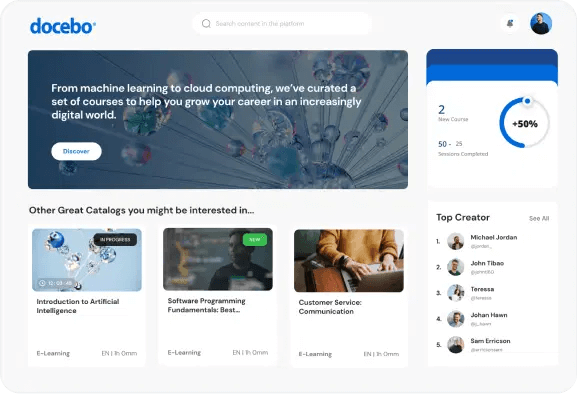
Docebo comes with a top cloud-based LMS solution that meets most of every organization’s training needs and requirements.
The platform is learner-centric and offers L&D capabilities using learning-specific Artificial Intelligence (AI) algorithms to personalize the learning experience.
Pros and cons
Docebo’s pros include:
The cons of this online learning platform are:
Who is it for?
Docebo is targeted at corporate and enterprise users training their employees and partners. It is prohibitively expensive for most course creators or small businesses.
Pricing
Docebo doesn’t list its prices publicly, so if you’re interested, to get the best idea of what it’ll cost for your business, you’ll need to reach out to their sales team for a quote.
*Information retrieved from Docebo’s pricing page in July 2025.
Customer verified review
9. Litmos: Easiest-to-use traditional LMS
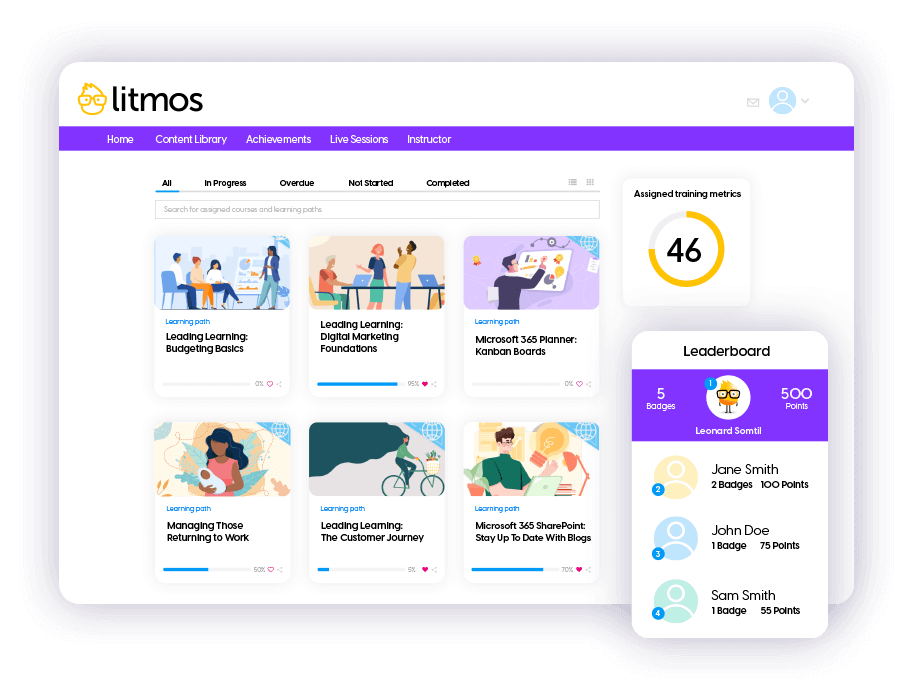
Litmos (formerly known as SAP Litmos) is a popular platform that offers a variety of eLearning solutions for businesses, including corporate, customer, partner, services, support training, and compliance training.
One of its biggest strengths is the ability to create customized learning paths for the needs and styles of every company and its employees.
Pros and cons
Pros of this online platform for learning include:
Litmos’ cons are:
Who is it for?
It’s suitable for businesses of all types and sizes, focusing mostly on corporate training.
Pricing
Pricing for Litmos LMS is not publicly available on the site, but it is based on the number of active users. Various online sources mention a price range between $2 and $5 per user per month.
Access to the LMS, specific courses, and add-on features comes with a quote-based plan after making a pricing request to Litmos directly.
Customer verified review
10. Moodle: The most popular open-source LMS

Unlike the majority of LMSs, Moodle is a free, open-source digital learning platform. You can also buy hosted versions of Moodle with technical support from many resellers.
Moodle is the usual LMS for higher education and is being used by many businesses as well. It requires a great deal of effort for setup, but may be the most customizable solution for elearning out there.
A large community of developers is still supporting it, and you can find or develop almost any feature you might require.
Pros and cons
Moodle’s pros include:
Cons of this elearning platform:
Who is it for?
Instructors: Moodle is best suited for colleges, universities, public administration, and specialized businesses with an in-house IT team.
Learners: While not the most user-friendly solution, it is relatively easy to use and could offer many functionalities for users, including a community, forum, etc.
Pricing
Moodle is open-source Moodle which is free to use but requires your own server to host.
The other is MoodleCloud or other providers, which offer a cloud-based solution and usually come with tech support.
Subscription plans include:
For off-the-shelf hosting:
For premium hosting: Customized pricing
*Information retrieved from MoodleCloud’s pricing page in July 2025.
Customer verified review
11. LearnDash: Best WordPress plugin for learning
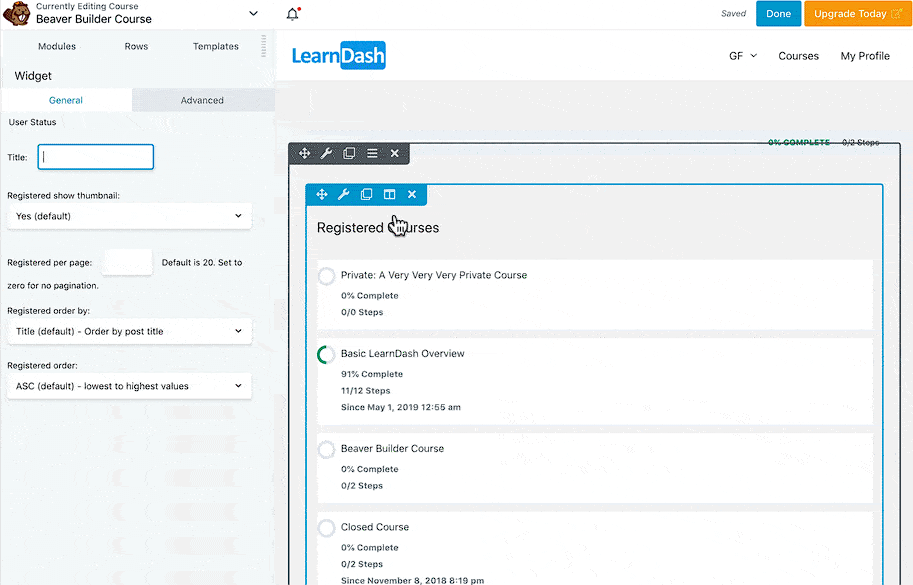
LearnDash is the most popular premium WordPress LMS plugin on the market. With it, you can design, promote, and sell online courses. Some of the best features it offers are its speed and its drag-and-drop course builder, which make the process of course creation both easy and enjoyable. LearnDash integrates seamlessly with your WordPress website, enhancing its functionality and user experience.
LearnDash has the flexibility of WordPress, allowing it to be very customizable. You can add many more functionalities that are not natively built-in. The downside is that adding too many plugins may be detrimental and break the website, requiring a developer to do the setup or keep maintaining the site and offering support.
Pros and cons
LearnDash’s pros include:
Cons of this digital learning platform:
Who is it for?
Instructors: LearnDash is suited for individuals and smaller companies, as it’s a low-cost LMS based on WordPress. It does not support most requirements for bigger, more complex organizations.
Learners: LearnDash’s interface is pretty easy to use and straightforward for learners. You will probably not realize when a course you bought is hosted on LearnDash.
Pricing
There are two ways to use LearnDash—either by getting the plugin or by launching a fully hosted course website.
LearnDash plugin’s pricing is based on the number of site licenses:
LearnDash Cloud (full-site) starts at $25 per month.
MemberDash (the membership plugin) starts at $199/year as a standalone plugin (does not require LearnDash).
*Information retrieved from LearnDash’s pricing page in July 2025.
💡Compare LearnWorlds vs LearnDash
💡Compare LearnWorlds vs WooCommerce
Customer verified review
12. Ezycourse: Best for language instructors and educators
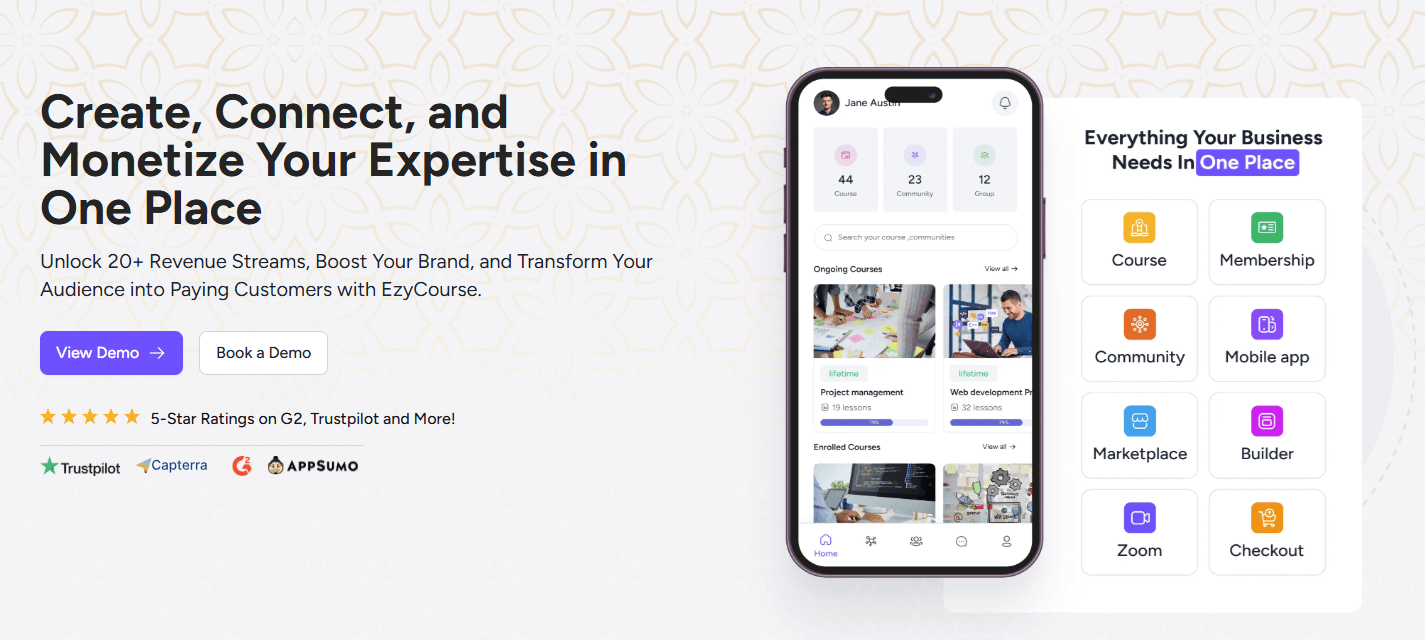
Ezycourse is an all-in-one online learning platform designed to empower educators and businesses to create, market, and sell online courses, services, and products. With features like custom landing pages, email marketing, and the ability to build membership-style sites, Ezycourse aims to simplify the process of online teaching and business management.
Pros and cons
Pros of Ezycourse include:
The cons of Ezycourse are:
Who is it for?
Ezycourse caters to a diverse range of users, including individual educators, entrepreneurs, and businesses looking to offer online courses, build communities, and sell digital or physical products.
Pricing
Ezycourse has a 14-day free trial and requires a credit card. Also, it offers the following monthly subscription plans:
*Information retrieved from Ezycourse’s pricing page in July 2025.
Customer verified review
13. Graphy: Best for creators and educators

Graphy is an online teaching platform that helps creators and educators to build, market, and sell their courses and digital products. It offers multimedia tools, website and mobile app development, and integrated payment gateways.
Pros and cons
Graphy’s pros are:
Graphy’s cons include:
Who is it for?
Graphy is good for content creators, educators, and businesses aiming to monetize their expertise through courses and digital products.
Pricing
Graphy offers the following subscription plans:
*Information retrieved from Graphy’s pricing page in July 2025.
Customer verified review
14. SamCart: Best for selling standalone courses and digital products
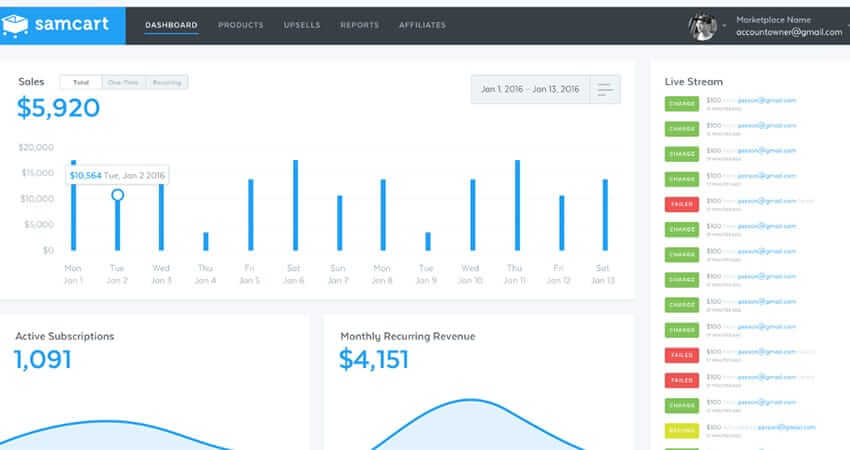
SamCart is a checkout-focused platform that provides ecommerce tools for course creators. While it’s not a full-featured online training platform, it’s a solid choice for instructors who prioritize sales funnels and conversions over detailed learning workflows.
Pros and cons
SamCart stands out for its:
However, SamCart may fall short due to its:
Who is it for?
Best for creators selling standalone courses or digital products who prioritize sales funnels over deep learning features.
Pricing
Pricing starts at $79 and scales as your business grows, according to SamCart’s pricing page.
Customer verified review
15. Passion.io: Best for mobile-first course creators
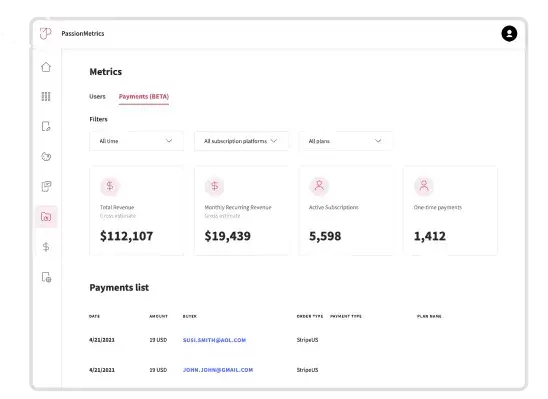
Passion.io allows you to create mobile apps for your courses without any coding. Its app-centric design supports course delivery through features like push notifications, interactive content, and built-in community tools.
Among our list of elearning platforms, Passion.io stands out for its mobile user experience and rapid deployment — creators can launch an app with minimal setup.
Pros and cons
Passion.io does well when it comes to:
The platform’s main limitations include:
Who is it for?
Ideal for creators in wellness, fitness, and coaching niches who need an app-based delivery model.
Pricing
Passion.io offers four pricing tiers:
A 14-day free trial is available on select plans.
*Information retrieved from Passion.io’s pricing page in July 2025.
Customer verified review
16. FreshLearn: Best budget-friendly platform for creators
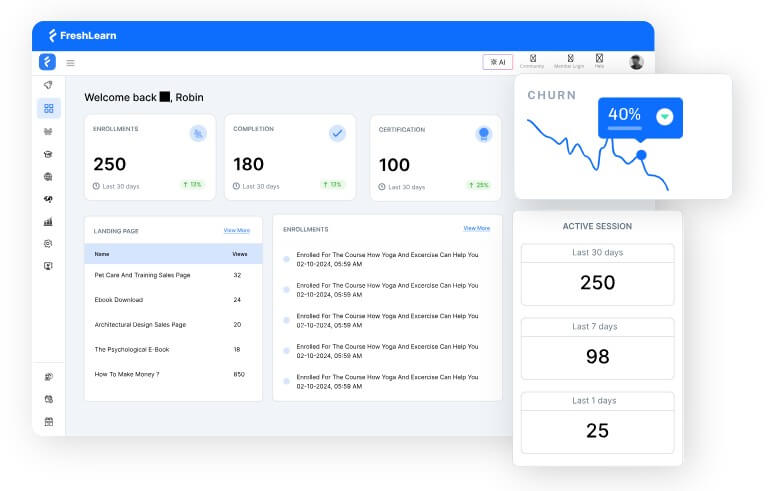
FreshLearn is an affordable course software tailored for creators and coaches who want to launch digital products, courses, and memberships without a complex setup. This digital learning platform includes white-labeling, community features, and multiple product types under one roof.
Pros and cons
FreshLearn appeals to creators thanks to its:
FreshLearn’s cons include:
Who is it for?
Solo creators or small businesses looking for an affordable course platform with essential tools.
Pricing
FreshLearn offers four monthly pricing plans:
Free trials are available for the Pro, No Brainer, and No Brainer+ plans.
*Information retrieved from FreshLearn’s pricing page in July 2025.
Customer verified review
So, which learning platform are you going to choose? LearnWorlds is the ideal option
There are many options available when it comes to the best online learning platforms, and each one has its own strengths and weaknesses. Some platforms are more suitable for individual learners, while others are more business-friendly.
Depending on your budget, type of course, and compliance requirements (for bigger companies), you may choose a different learning platform that fits your needs.
Our favorite option is hands-down LearnWorlds’ enterprise LMS.
It’s the easiest all-in-one course platform offering a high-end learning experience to your learners, whether you are an individual creator or a business.
Want to try out LearnWorlds? You can get a 30-day free trial today and schedule your demo.
Rosemary is LearnWorlds’ Content Marketing Manager. She has over 2 decades of experience in omnichannel marketing and content writing for the IT and SaaS industry. Her expertise lies in crafting effective content marketing strategies that attract, engage, and nurture customers, enabling LearnWorlds to reach its target audiences with precision.
Kyriaki is a Content Creator for the LearnWorlds team writing about marketing and e-learning, helping course creators on their journey to create, market, and sell their online courses. Equipped with a degree in Career Guidance, she has a strong background in education management and career success. In her free time, she gets crafty and musical.
FAQ
Everything you have ever wondered, but were too afraid to ask...






